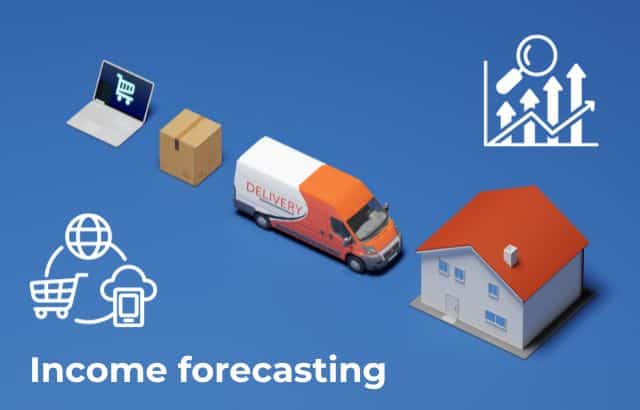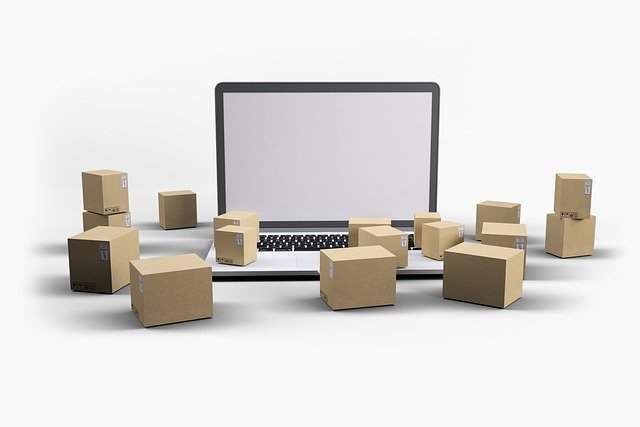E-commerce is an emerging and evolving industry. Despite its penetration, it has its loopholes and set of problems. Dealing with them needs expertise. But more than dealing with problems, being prepared for them is success mantra, maintains astro-strategist Hirav Shah
E-commerce has changed the business scene around the world. A decade ago, it was still in its nascent stage even in the most developed countries. But today, it is the most popular even in the remotest parts of the world. Giant companies like Amazon sell everything from pins to high end home appliances and home furniture via e-commerce.
When it first started in India, e-commerce was a rather confusing and stressful process, with wrong deliveries or damaged deliveries. However, of late, the sector has streamlined its activities and e-commerce has become a huge business, giving the retail brick and mortar stores a run for their money. Of course, nothing beats the joy of going to a store and handpicking your choices, but thanks to lack of time and the potato couch culture that has taken over the global population, the e-commerce sector stands to gain.
It is said that one day, humans will be able to buy everything and anything through e-commerce. Well, that surely is a sad sign of things to come, but e-commerce is surely here to stay. Also, during the pandemic, people across the globe have survived thanks to e-commerce and many new customers have started shopping online, for their most basic needs. Today, e-commerce sites deliver to the most remote sites and deliver from most remote sites. This synergy has helped the sector gain traction within a short span of time.
“It’s an industry that has a lot of potential for growth. Over the years, the e-commerce sector has sorted out its problem areas and is now accessible to all. This shows it has a bright future,” says astro-strategist Hirav Shah.
Table of Contents
Why opt for e-commerce?
1) Shopping from where you are
It reaches your home at the click of a button. All you need is to surf the net for the right product and it is delivered right up to your door, with no additional cost or nominal shipping charges. It need not be your home, you can get what you want delivered to wherever you are, probably with few exceptions.
2) Distance or location is no problem
A brick and mortar store has the limitation of serving to a specific area. On the other hand, an e-commerce site can deliver to any corner of the world. Most sites notify upfront that they ship across the world. In short, the world is their playground or let’s say their market. Also, with mobile phones, the buyer and seller connectivity has increased many-fold. The entire process of purchase has also been simplified.
3) Search engine visibility
One main advantage of an e-commerce site is the traffic driven by search engines. The site will be visible to all looking for similar products and this drives customers. On the other hand, while surfing, the search engine throws up e-commerce links and when the customer clicks on the same, he or she is taken to a new site from where they could purchase goods or services. This is an additional advantage. On the other hand, a brick and mortar store has to depend on advertisements in print and audio visual medium, which is limited to a certain geographical location.
4) Lower costs
E-commerce sites don’t need a physical space to maintain their operations. This means a lot of savings. Also, the entire process of making a purchase is automated — billing, processing and delivery information. Due to this, an e-commerce site can function with skeletal staff. Last but not the least, the cost of advertisements. For a retail or physical store, the costs of advertising can be daunting. On the other hand, for an e-commerce site, social media traffic, organic search engine traffic and pay-per-click makes it an easy on the pocket process.
5) Finding a product is quicker
In a physical or retail store, finding what you want can take time as there is no specific catalogue you can browse through. Also, finding the store or the right store could be an issue in itself.
On the other hand, in an e-commerce site, everything is clear-cut. There is a well-designed catalogue, which is of the same format in all e-commerce sites and this makes it easy for a person who is browsing to find what he or she wants within a jiffy. Well, finding some products takes time, but that is nothing compared to a physical store.
Also, a surfer can click in the search box for a product which instantly narrows down their search, especially on huge sites like Amazon, Flipkart, etc.Some sites track a customer’s interest and put forth a shopping list to facilitate future purchases.
6) Cuts down on travel time and cost
One does not have to travel to a store, which means setting aside time to physically travel. It also means no travelling costs. On the other hand, an e-commerce site can be accessed from anywhere and barring a few clicks, one does not have any other hassles.
7) Check competitive prices
If one wishes to check prices in various stores, then it’s a huge hassle and at times rather embarrassing. On e-commerce sites, you need not feel bad about checking prices on competitive sites. You can browse till your heart’s desire and then decide on a product that satisfies you thoroughly.
8) Various incentives like deals, etc
Physical stores too offer seasonal discounts, anniversary discounts and the lot, but on e-commerce sites, everyday is a discount day in some form or the other. There are deals, bargains, coupons, group buying options.
9) Product description
In physical stores, it is hard to put up a detailed description of the product. If a salesman is well-versed, he or she might still help out the customer with doubts. But on e-commerce sites, all information is clearly listed. Then of course, there is customer support and FAQs section for common doubts. The sites also have a double advantage as information is provided by the vendors. So, there is barely any cost involved.
10) Returns
Physical stores do accept returns, but the options are limited and there are many conditions. However, returns on e-commerce sites are commonly practised and most sites offer return pick-up. In some cases, the customers have to return the products, but they get what they want at the end of the process. Again, the returns can be done at a price that is less than travelling to a store to return a product.
11) Targeted communication
Thanks to the registration form and cookies, e-commerce sites gather a lot of information about the customer and his or her preferences. Due to this, they can show products that suit the tastes and interests of the customer. Also, if one is searching for a product, a product list of similar products on different sites pops up on the sidebar. Alternately, a site also sends emails to its customers about products they could be interested in.
12) 24×7 access
There are specific timings when brick and mortar stores operate. They could be closed on special holidays too. When it comes to e-commerce sites, they are open 24×7, 365 days. Orders can be placed as and when needed.
13) Access to niche products:
One of the biggest advantages of e-commerce stores is to provide niche products for customers. Because various vendors sell their products via e-commerce sites, their special products are on display which may not be easily available in a physical store.
Challenges of e-commerce sites and need for revenue forecasting
■ Finding the right products to sell
Yes, in a world of Shopify, creating an e-commerce site has become real easy. Multi-product and multi-brand sites like Amazon have humongous catalogues. Chinese sites provide Chinese products even here in India. But for an ordinary manufacturer, finding the right products to sell is a huge catch in the e-commerce world. Yes, customers look for everything. But they want quality and competitive prices at the same time. This is a huge challenge for small, medium and not so large e-commerce sites. This means investing more on online advertising, which can mean reduced profits to the sellers.
■ Being visible to the right customer
Today, the e-commerce world has undergone a lot of change. Customers search google, major e-commerce sites, read up reviews, recommendations on social media platforms, check on their mobiles, before buying a product. So, it’s a challenge for e-commerce sites to understand the preferences of their customers and how to attract them by offering budget-friendly prices, without going back on quality. This is money consuming.
■ Targeting the right traffic
Today, owing to the stupendous growth in the e-commerce market, sticking to one channel to communicate with customers, does not pay. The e-business people must be able to leverage SEO, PPC, email, social display ads, retargeting, mobile, shopping engines and affiliates to drive traffic to their online stores. The whole plan is to be visible where the audience is involved.
■ Getting quality leads

The conversion rates of customers often range from 1% to 3%. To ensure this, online sellers have to spend a lot of money on advertising. They have to shell out money on multiple platforms, as one never knows where the customer will convert his or her interest into a purchase. Also, e-businesses must ensure that they target the right customer at the right time. This also means marketing money.
■ Nurturing future customers

Email lists are a huge help here. Sending personalised emails is always welcome and does work well for e-businesses. But that cannot be the only way to ensure purchases. Online retailers have to communicate on multiple platforms, keep their customers engaged and all this means pumping in more money and of course, work.
■ Ensuring shoppers turn customers
One of the main objectives of e-commerce is to gain customers. Driving quality traffic and nurturing leads is vital to close sales. There comes a critical point where a shopper turns into a customer. This is the point when e-businesses need to nurture the customer to close the deal. More customers mean payments for your marketing initiatives.
■ Retaining customers
One rule of e-commerce is that retaining old customers is cheaper than gaining new customers. It is important to make sure that their customer base has a long-term relationship with them.
■ Keeping profits coming in
Increasing sales is just one part of e-business. However, what matters most like in all businesses is profitability. It is crucial for e-business persons to find ways to cut inventory costs, improve marketing efficiency, reduce overhead costs, reduce shipping costs and control order returns.
■ Choosing right support partners and technology
E-commerce requires good tech support. From the word go, they must have the best possible shopping cart solution, inventory management software, email software, CRM systems, analytics and more.
Also, if they outsource support, then it is critical that they have the right agencies working for them. A wrong partner could easily spell doom to profitability.
■ Having the right human resources
Online businesses may have lofty goals. But it is very important for them to have good people working with them with a clear sense of purpose. Building an online community, being seen at online event venues may happen, but retaining quality employees is a huge plus. And that means revenue.
How does astro-strategist Hirav Shah play a role in estimating income?

When businesses face challenges, they often seek consultants for tailored solutions. Every industry has its unique problems, and boosting profits while managing investments is a common struggle. In the world of e-commerce, which has grown rapidly, there are both advantages and challenges.
Astro Strategist Hirav Shah is a go-to expert for resolving business issues. He’s well-known for assisting businesses of all sizes, with a particular focus on the e-commerce sector. This industry is still evolving, and Shah uses his business expertise and astrological insights to provide customized solutions for revenue problems.
Rather than dealing with multiple consultants, businesses can turn to Hirav Shah as a one-stop solution. His goal is to apply a mix of business acumen and astrological predictions to guide e-commerce businesses smoothly through their journey, addressing their specific concerns.




























